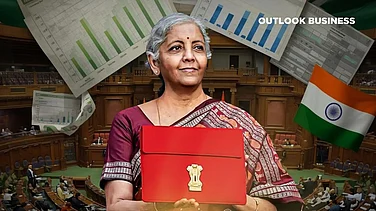Economic Survey 2024-2025: The Indian stock market has remained under pressure during the past few months, with benchmark indices struggling to stay in the green territory. Since the past 6 months, both BSE Sensex and Nifty50 have plummeted over 5% as subdued macros and earnings season failed to uplift the market mood.
The recent Economic Survey has added another layer of pessimism to the current downtrend. As per historical data, the Indian equity market has been sensitive to the movements of US markets as Nifty50 index has shown a strong correlation with the S&P 500 in several instances.
From 2000 to 2024, whenever the S&P 500 dropped by more than 10% the Nifty50 also declined sharply. Out of 22 times, this happened, the Nifty 50 only showed a positive return once. On average, during these declines, the Nifty 50 dropped by about 10.7%.
"Elevated valuations and optimistic market sentiments in the US raise the likelihood of a meaningful market correction in 2025. Should such a correction occur, it could have a cascading effect on India, especially given the increased participation of young, relatively new retail investors," the Economic Survey read.
This cautionary signal comes at a time when the corporate earnings of the US are facing skepticism. This is largely because much of the growth is concentrated within a few major tech firms. Plus, a lot of the growth has been backed by heavy government spending, which jumped 10% year-over-year to $6.75 trillion between October 2023 and September 2024.
Retail investors to the rescue?
Time-to-time, market custodians and D-street analysts have raised alarm over retail investors incurring heavy losses after high-return baits given on social media and other channels.
The number of active traders in NSE’s cash market surged from 32 lakh in January 2020 to 1.4 crore in November 2024, highlighting a sharp rise in retail participation.
However, this surge has also made Indian markets less reactive to the US market movements.
This rise in retail participation aligns with a steady decline in the 5-year rolling beta between the Nifty 50 and the S&P 500 in the last four years, suggesting a reduced sensitivity of Indian markets to U.S. market movements. This decoupling is further evidenced by the increasing resilience of Indian markets during periods of FPI outflows, the Economic Survey further read.

































